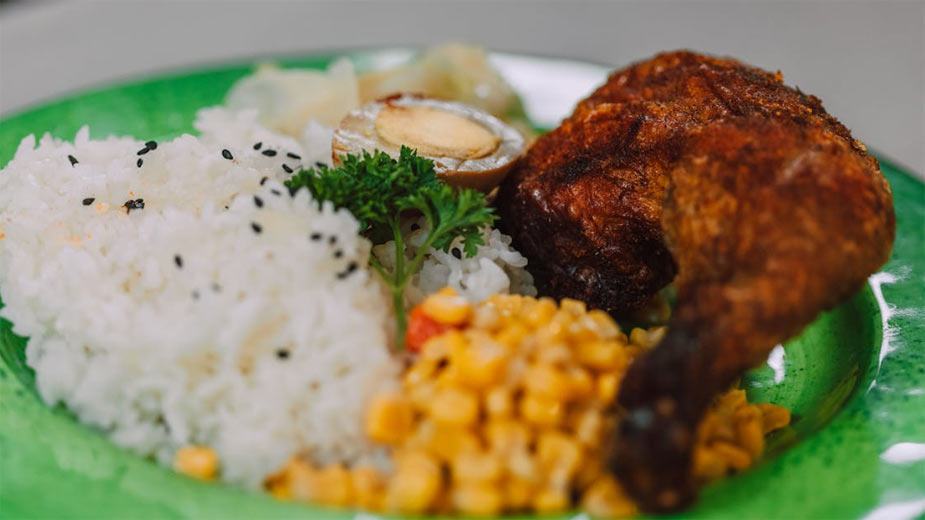
What is it about the holidays that makes us forget everything we know about taking care of our bodies? Even those of us who are generally healthy tend to overdo it, binging on cookies and eggnog at Christmas parties and canapes and champagne on New Year’s Eve. Then we look to January 1 for our big comeback: we will change. We will improve. We swap binge-consumption for celery sticks and three-hour trips to the gym…and we fail because the changes we make are not sustainable. Alisa Turner, a certified Integrated Health Coach based in Mount Pleasant, knows the struggle is real. However, she also knows how to change. She should. Her life, like so many of ours, has been a journey full of twists and turns.
This isn’t a sprint; it’s a marathon. Lifelong habit changes don’t happen overnight, but they also won’t happen if you don’t try.”
Born in Connecticut and raised in New Jersey, Turner learned early that she’s majorly affected by the weather. She moved to San Diego in search of kinder climates. But it was woven in her body chemistry to struggle. First came eating disorders.
“That’s how I asserted control,” she said of the struggle, which required years of therapy to manage.
 Then it was alcohol, a coping mechanism to deal with a high-pressure sales job, the stress of raising young children and the trial of two divorces. With alcohol and stress came weight gain.
Then it was alcohol, a coping mechanism to deal with a high-pressure sales job, the stress of raising young children and the trial of two divorces. With alcohol and stress came weight gain.
“Years of restriction and purging do a number on your metabolism,” she recalled. “Between the crazy working hours, not sleeping, not eating well—I was gaining weight and unable to lose it.”
The lifestyle was unsustainable. Turner knew she needed to work on herself, prioritizing her health and wellness even though at times it felt selfish. She got sober, dove into a 12-step program and went back to school for nutrition. She learned that in shedding the weight of toxicity in life, physical weight often comes off as well. Fascinated, she investigated both the science and spirituality behind wellness, and today, she works hard to help others find their paths forward into healthful living.
How do they do it? And how can we do it, too, after the dust settles on the holidays? First, she said, understand that health isn’t simply about what you eat and how many hours you spend on the treadmill.
“Food is just a piece of the puzzle. Getting quality sleep, good hydration, and building good relationships and a good sense of self are key,” asserted Turner. “You can also come to the helpful understanding that food is fuel. So often, we use it for ways that aren’t intended.”
Second, it’s helpful to remember that every meal doesn’t need to be an adventure, but it’s okay when some are. Turner plans out her meals each week, cooking on Sundays, and calls most of her meals “kind of boring.” But she builds treats into her schedule—Halo Top ice cream at night, a weekly girls’ outing and even pizza Fridays—so the daily meals of chicken, rice and veggies are much easier to “digest.”
She affirms that it’s also OK to slip up sometimes. Remember, it’s a journey, not a destination. “If you’re craving a cookie,” she said, “try to use a tool to get past the craving. Take a walk, move a muscle, distract yourself. But if you still want the cookie, eat the cookie, and don’t beat yourself up about it. Feeling guilty about eating the cookie will do far more harm than the cookie itself.”
For meal planning, she suggests staying simple. Get some chicken and cook it in the crock pot. Grab vegetables from each color of the rainbow. Add a grain such as rice, and bam: you’ve got meals for the week that are easy and healthy.
Finally, Turner notes that routine is the key to sustainability. Turner suggests taking the time to learn your routine— your average number of steps per day, your average calories consumed and your average bedtime. Once you know what you’ve been doing, try making a small change or two to see if it helps. If it doesn’t immediately work or if you fall off the wagon, it’s OK.
“You have to give yourself grace,” Turner assured. “If you consistently don’t achieve what you planned, maybe what you planned is too aggressive. Back it up a little, find some success with a smaller change, then build on that success. This isn’t a sprint; it’s a marathon. Lifelong habit changes don’t happen overnight, but they also won’t happen if you don’t try.”
So, when the time comes for your New Year’s Resolution, make routine the resolution. According to Alisa Turner, that’s the way to make it stick all year and beyond.
By Leah Rhyne